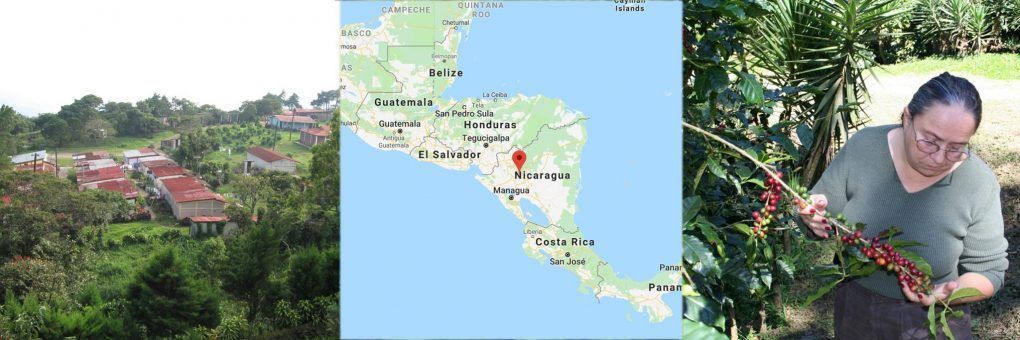
Region: Matagalpa
Farm: Selva Negra Coffee Estate
In the late 1800s, German families immigrated to the New World in search of better lives and livelihoods. On their way north to try their luck in California’s gold rush, they paused in Nicaragua… and fell in love. These men fell in love with Nicaraguan women and with Nicaragua itself, its high tropical mountains, idyllic beaches, and strong, familial communities. So they stayed. And some of them planted coffee.
In 1974, Eddy and Mausi Kühl, both descendants of those early German immigrants, bought one of those coffee farms. They refurbished the La Hammonia farm and started an on-site ecolodge and restaurant called Selva Negra, named after the German Black Forest of Mausi’s ancestors.
After a brief exile during the Nicaraguan Civil War, they returned to La Hammonia in 1990 and made it totally diversified and sustainable in less than a decade. They have preserved a third of the property as virgin forest, another third as shade coffee forest, and the last third as intensive rotational pastures for cattle and organic farming.
Selva Negra employs 180 workers year-round on the coffee farm, who live either on-site with their families or in the nearby city of Matagalpa. During picking season they hire seasonal workers who stay in housing on-site.
All of the coffee on the farm is shade grown and half of it is certified organic. The other half is still handled organically, however due to neighbors who are not certified organic, those lots on the farm cannot hold the certification.
Selva Negra has its own dry mill and wet mill, giving them total control over their coffee’s quality. From the dry mill, they recycle the coffee husks as fuel in the workers’ kitchen and from the wet mill, they use the cherry pulp as compost in our worm farm and use the honey water byproduct to produce methane gas for cooking and electricity.
They use organic pesticides and fungicides developed in their on-site organic laboratory, as well as recycled traps for the broca, or coffee borer beetle. To make the traps, we first cut a hole out of a large soda bottle and paint the bottle red to resemble a cherry. Inside, they hang a little dropper bottle full of alcohol and coffee grounds, and fill the bottom of the bottle with water. The beetles smell and see what they believe is a nice big red cherry and drown inside. Each season, they capture between 600,000 and 2 million broca.
The Selva Negra Estate has won the Specialty Coffee Association of America (SCAA) Sustainability Award in both 2007 and 2008, the Sempervirens Award in the ‘90s, and other sustainability awards. Mausi Kühl has given conferences on sustainability at the SCAA, Oxfam, Cornell University, and other institutions in Barcelona, Taiwan, London, and various US cities. Eddy Kühl has published several books on the history of Nicaragua and its coffee. He has also produced an album of authentic Nicaraguan folk music from across the country. Two of their daughters help run the farm and ecolodge, while a third imports their coffee beans to the US through Beanealogy.
Cupping Notes: Nutmeg, Apricot & Milk Chocolate
Basic Roast Level: Medium
